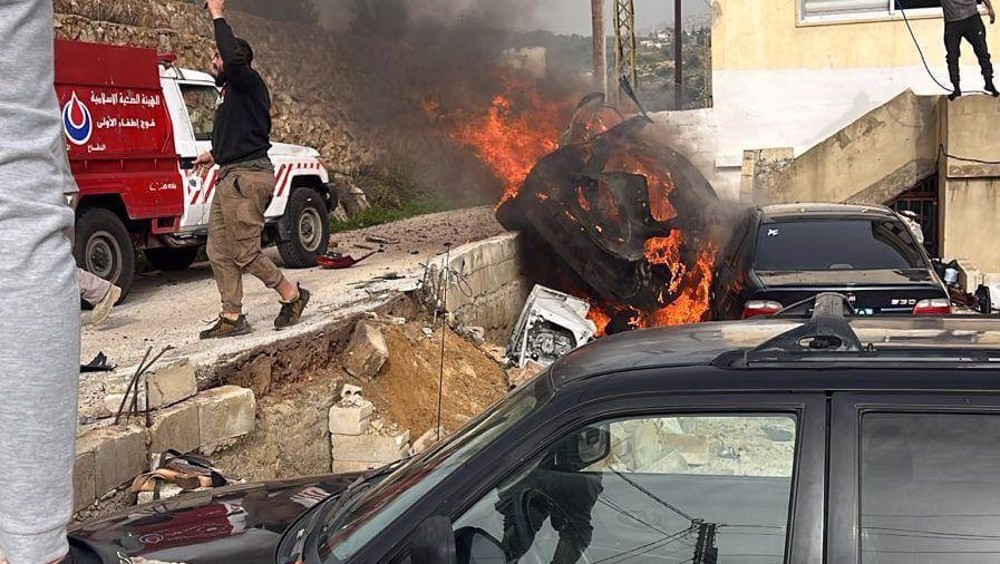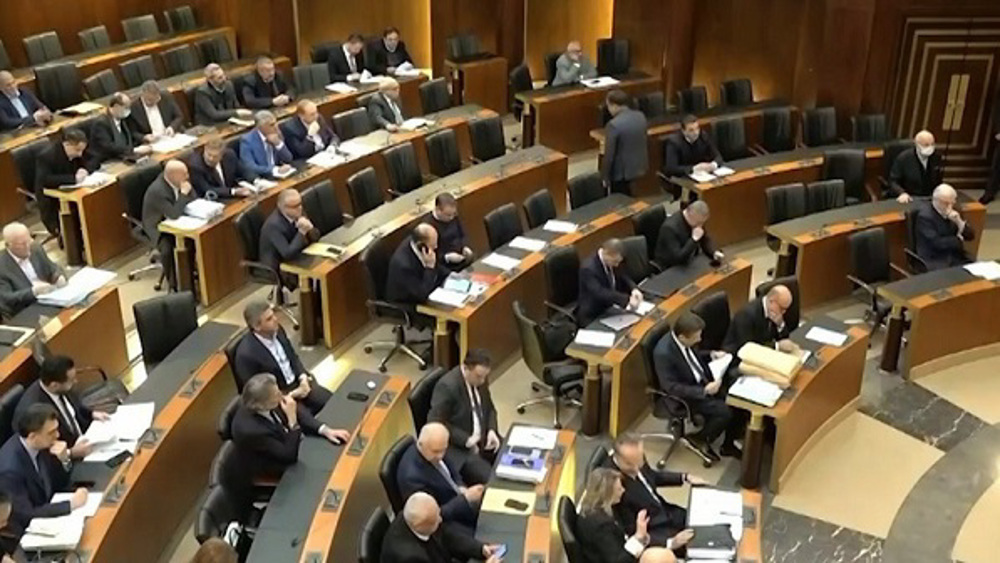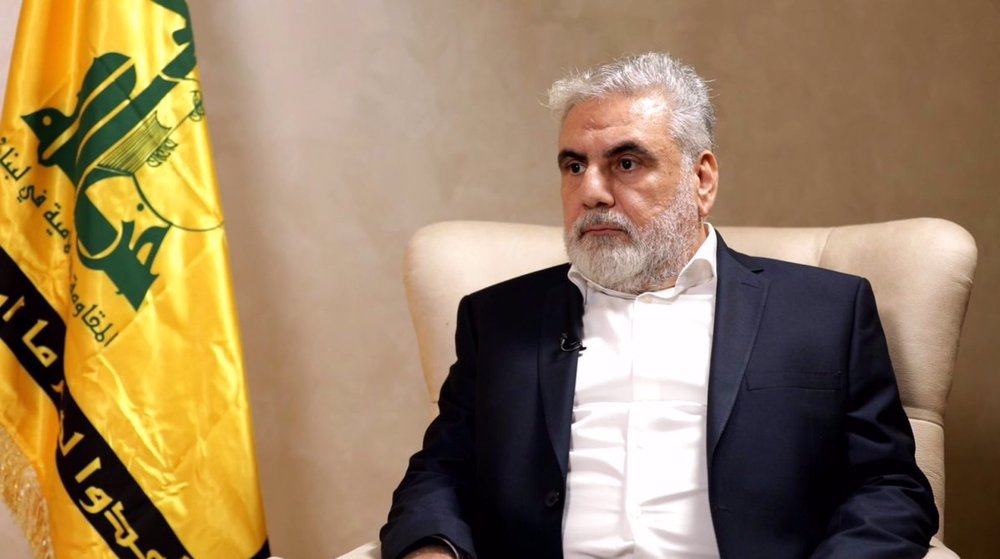Western, regional countries imposing sanctions on Lebanon behind dire conditions: Analyst
A political analyst tells Press TV that countries like France, US and Saudi Arabia are behind the current dire conditions in Lebanon due to sanctions they have imposed on the country, urging protesters to ask these countries “to back off and end these sanctions on the Lebanese people.”
In an interview with Press TV’s News Review program on Sunday, Feroze Mithiborwala, a political activist and commentator, said there is currently a lot of anger in Lebanon, adding, “Let us also go to the fact that where the economic sanctions [are] coming from.”
“They are coming from the US and its allies. Who are the people running the [Lebanon's] banking system? The central bank is run by Mr. Riad Salamé ... who is an American stooge. Let the protesters ask where is the Lebanese gold? The gold is not in the Lebanese banks, it is in Latin America. Let the protesters ask France and America and the Saudis to back off and end these sanctions on the Lebanese people. That is where the crisis is coming from, the inflation, the unemployment; that is where the crisis is coming from,” Mithiborwala said.
The political activist noted that the central problem in Lebanon is its political system, arguing that the country should reform its constitutional and parliamentary system where people can come together to address the dire economic and social issues.
He accused the oligarchs in Lebanon of “looting the country dry,” suggesting that the Lebanese people should kick them out as well as the banks that are run by the United States.
Mithiborwala further urged the Lebanese people to protest peacefully, adding that the protesters who are storming government offices and burning documents are foreign agents.
Thousands have taken to the streets in Beirut to protest the government’s handling of the aftermath of a huge deadly explosion in the Lebanese capital that sent the country’s main grain silo up in smoke.
The country was already dealing with financial constraints that had brought the people to the streets on many occasions.
Elsewhere in his remarks, Mithiborwala said the blast in Beirut was aimed at creating chaos and regime change in the country, noting that the presence of American spy planes off the coast of Lebanon and Syria during the course of the incident is very suspicious and poses serious questions about foreign interference.
At least 158 people are so far confirmed to have lost their lives, while more than 6,000 others were wounded in the powerful explosion that ripped through the Beirut port on Tuesday.
The number of fatalities and those hurt is set to rise as search and rescue operations are still underway.
The blast took place in Beirut port warehouses storing highly explosive material, specifically ammonium nitrate, commonly used in both fertilizer and bombs
The blast — one of the biggest non-nuclear explosions the world has ever seen — flattened much of the strategic port and left buildings in ruin and left hundreds of thousands of Lebanese homeless.
On Saturday, angry anti-government protesters filled downtown Beirut and stormed government buildings, calling for justice for the blast victims and demanding the resignation of the entire ruling class.
Police fired teargas and rubber bullets to disperse the crowds. Nearly 730 people were wounded in the clashes and a police officer was reported to have been killed.
#IR47: How Iran’s Islamic Revolution continues to inspire anti-imperialist currents worldwide
VIDEO | Italians: EU no longer diplomatic broker but instrument of war
Leader: Any US-initiated war against Iran would become regional
Iran cementing ‘green gold’ legacy against US sabotage
Dismissing Trump’s interference, Iraq’s Shia bloc backs Maliki as prime minister nominee
ICE ordered to release 5-year-old boy and father after arbitrary arrest
Thousands rally across Europe to support Palestine, condemn Israeli atrocities
Hamas leader: Commitment to Gaza ceasefire hinges on Israel’s compliance










 This makes it easy to access the Press TV website
This makes it easy to access the Press TV website